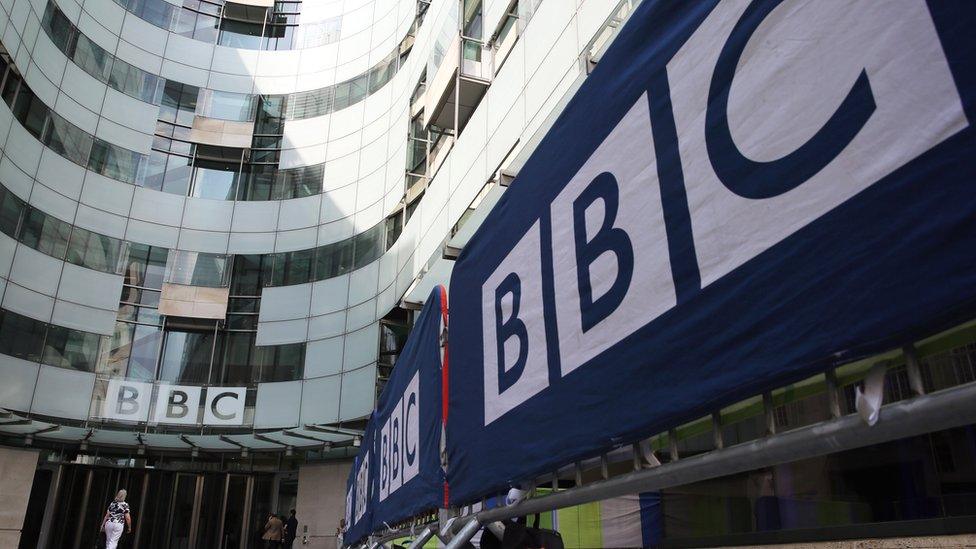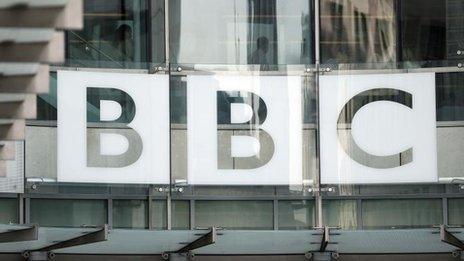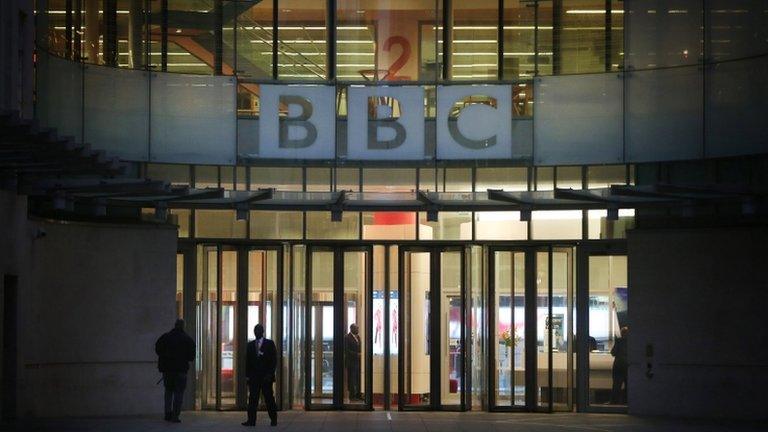'One hundred' BBC presenters face HMRC tax investigation
- Published

The BBC moved a number of freelance presenters onto staff contracts in 2013
About 100 BBC presenters are being investigated over whether they paid too little tax by working as freelancers, not staff, legal documents have shown.
HMRC is examining 100 figures who were paid via personal service companies.
A tribunal ruling in a case involving BBC News presenters Tim Willcox and Joanna Gosling revealed HMRC has opened enquiries into 100 other on-air stars.
The BBC said the tribunal related to between 2006 and early 2013, when it adopted a new employment status test.
The case relates to whether Willcox and Gosling were eligible to pay tax as freelancers through their own personal services companies or should have applied legislation known as IR35, as employees.
The pair have appealed against the extra tax and National Insurance contributions which HMRC decided were due. According to the ruling, both became staff in 2014. The pair are not commenting.
The HMRC has examined a list of 469 current or former presenters who have peen paid via personal service companies and put around 100 cases "under consideration", according to a BBC application to the First-Tier Tribunal.
'Industry-wide'
The BBC's application, which was quoted in the judgement, continued: "The BBC also understands that HMRC has initiated or indicated their intention to initiate IR35 proceedings in relation to presenters who are engaged by other broadcasting organisations...
"The appeals are therefore extremely important not only to the individuals in question but also to the BBC and to the broadcasting industry as a whole.
"The appeals are likely to be the first cases to test the freelance model in the broadcasting industry against the IR35 legislation."
An HMRC spokesperson said employment status is "never a matter of personal choice and is always dictated by the specific facts".
The spokesperson continued: "When the employment relationship does not accurately reflect the underlying reality of the relationship, the wrong tax is paid then we intervene to ensure the rules apply as parliament intended.
"While there can be many legitimate business reasons for workers being employed through their own companies, there are rules in place enabling HMRC to make sure people who provide their services in this way pay the right tax and National Insurance."
A BBC statement said it was "an industry-wide issue and affects those who have been engaged in this way for a number of different organisations".
The statement added: "The exact number of cases that will be taken forward will be determined by HMRC. This particular tribunal relates to tax issues between 2006 and early 2013 and not the present day.
"It is up to individuals to ensure they pay the right tax, and since 2013, the BBC has adopted a new employment status test that provides a clear and consistent approach to the employment status of journalists and presenters."
The BBC announced in 2012 that it would give up to 131 freelancers staff contracts after a review of the use of personal service companies.
- Published7 November 2013

- Published7 November 2012
